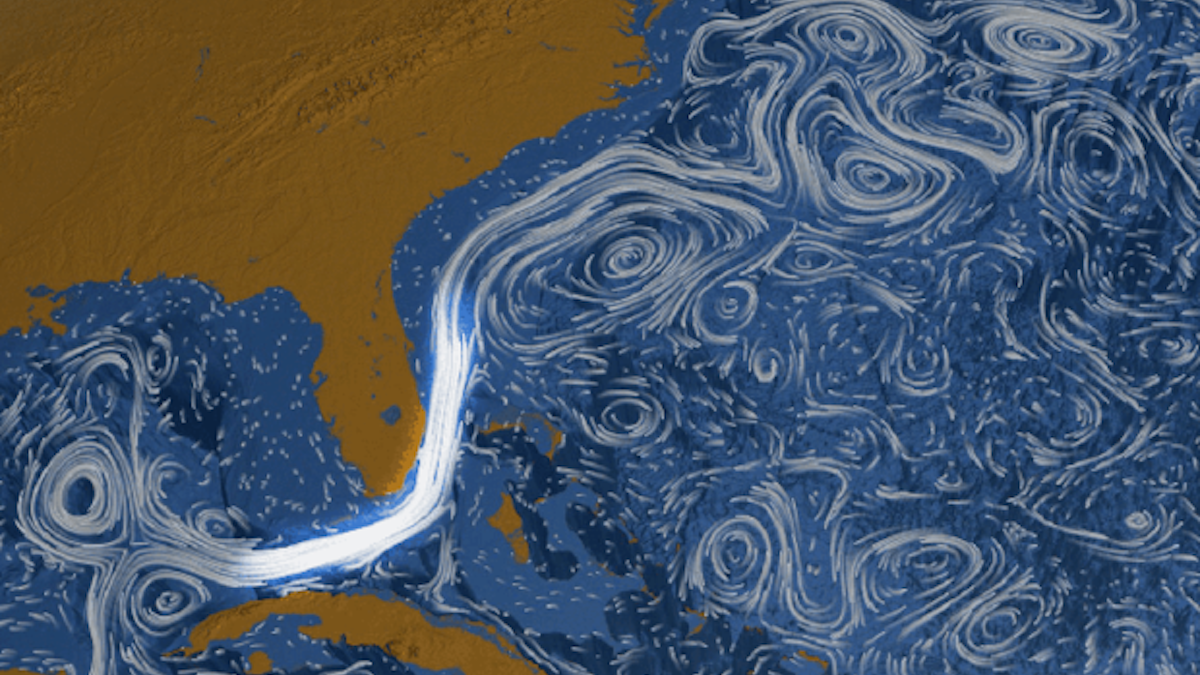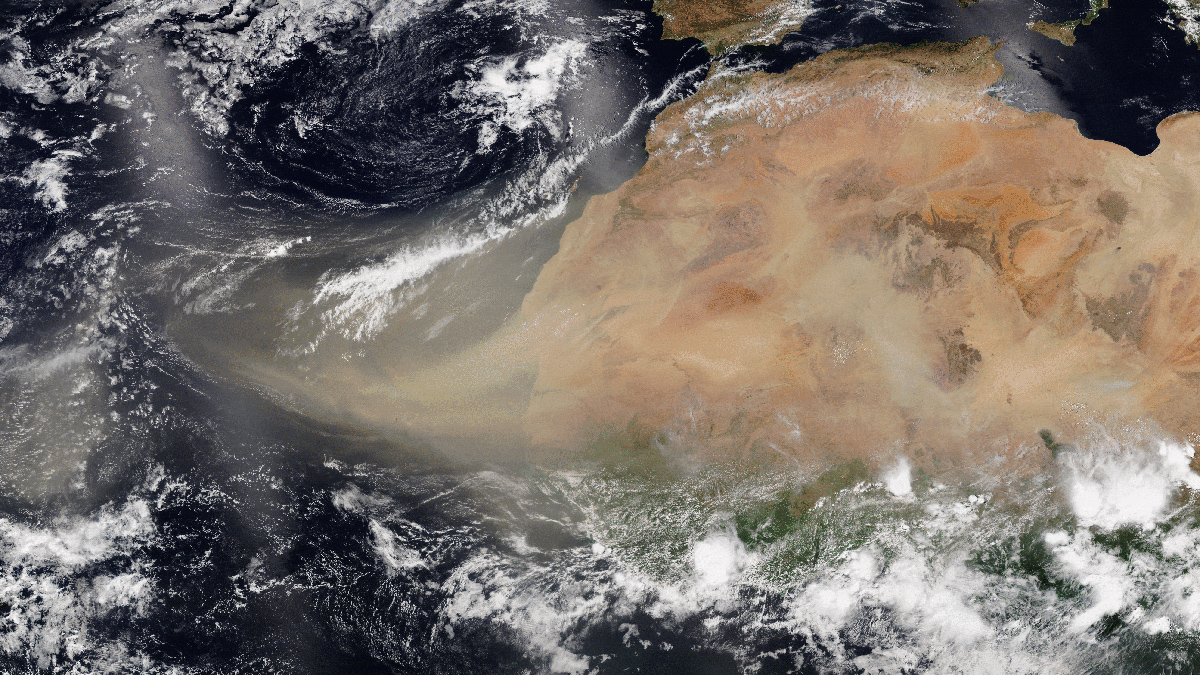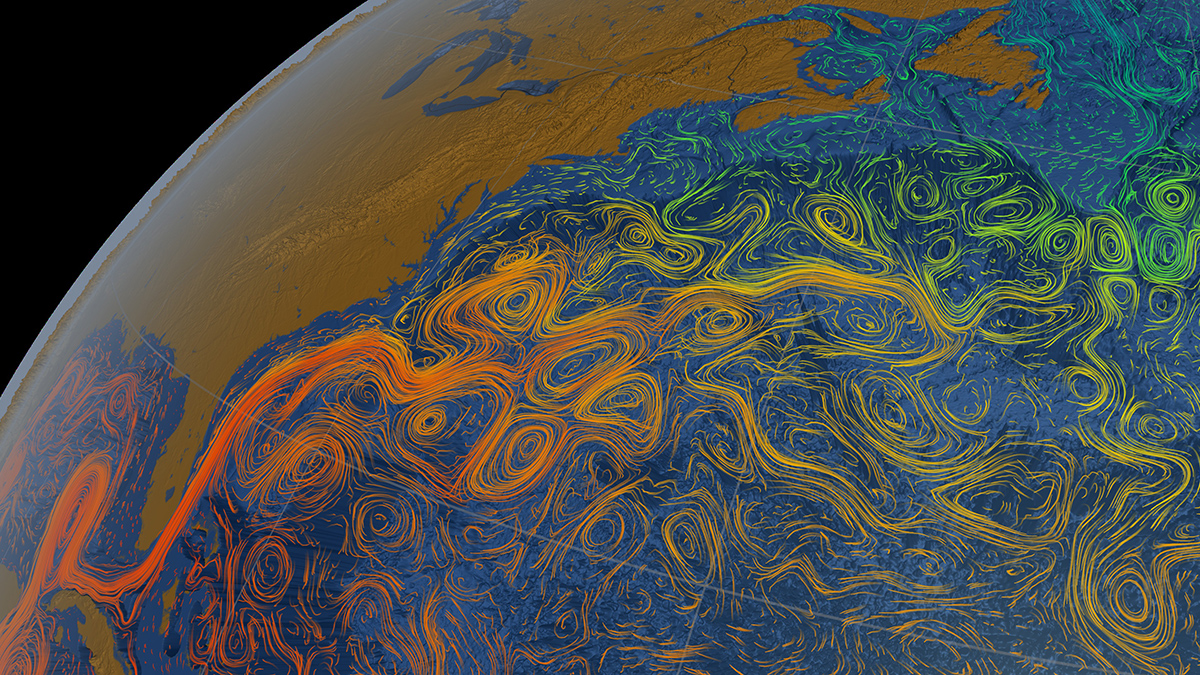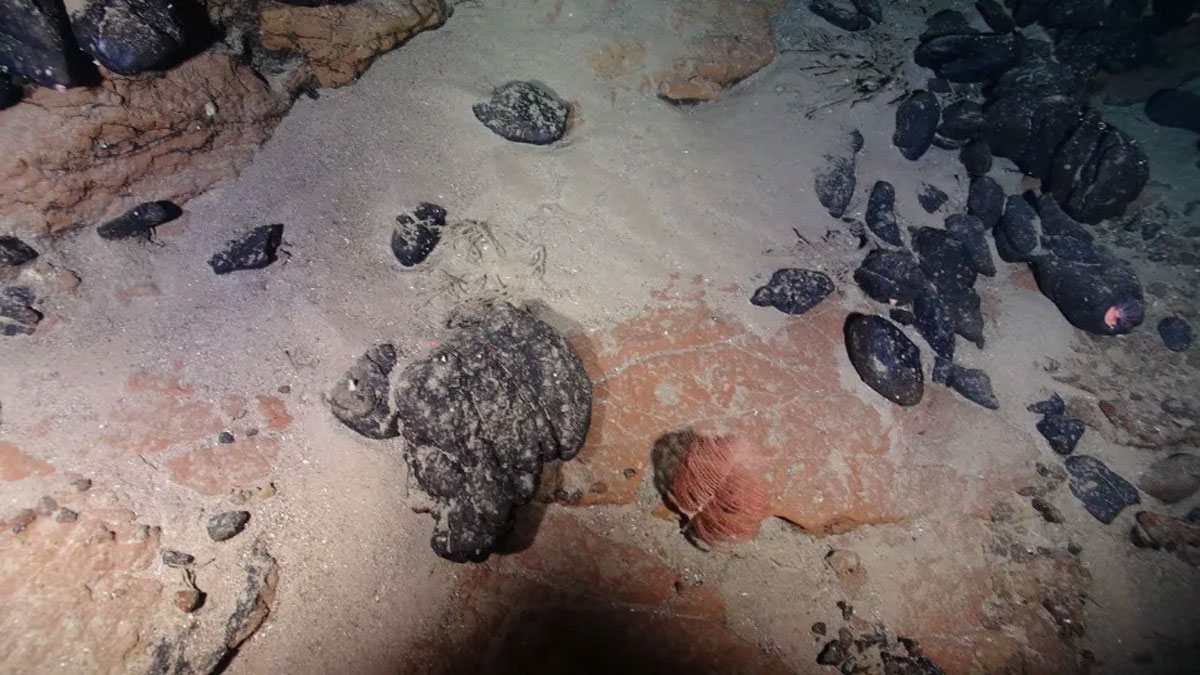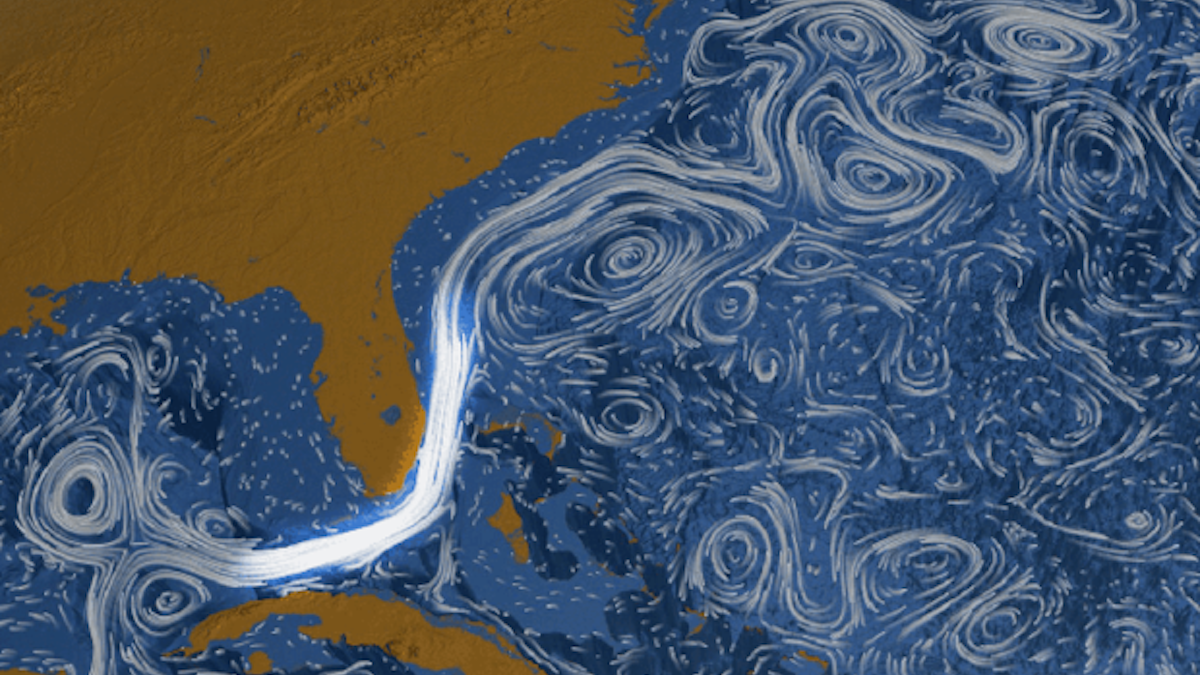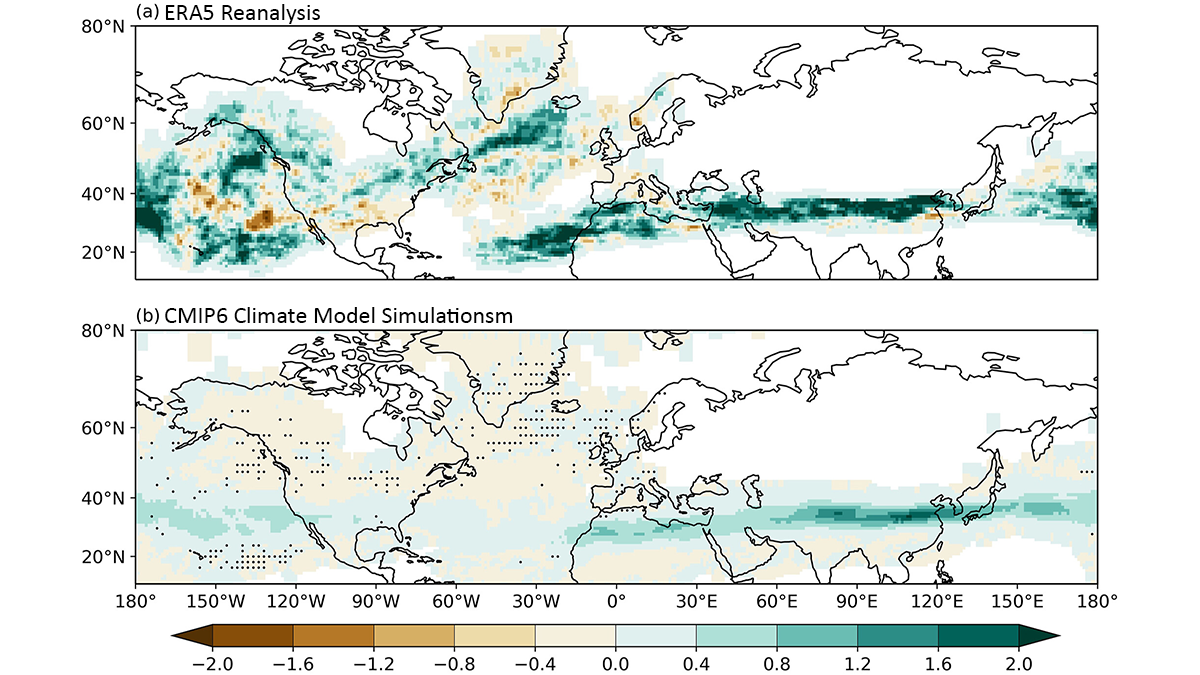Una corrección necesaria a un conjunto de datos ampliamente utilizados redujo las estimaciones de los científicos de cómo se ha debilitado la circulación oceánica.
Atlantic Ocean
Saharan Dust Carries Iron That Feeds Life in the Distant Ocean
A new study of seafloor sediments suggests reactions in the atmosphere convert dust-borne iron into forms more readily taken up by phytoplankton.
The North Atlantic Is Getting Saltier
The Atlantic is already the saltiest of Earth’s oceans, and parts of it are getting saltier. Winds and warming may be to blame.
Uma Ilha Tropical Há Muito Perdida Fica no Litoral do Brasil
Um platô vulcânico submerso no sudoeste do Atlântico foi uma ilha tropical há 45 milhões de anos.
The Florida Current May Be Slowing Down, but Not by Much
A needed correction to a widely used data set reduced scientists’ estimates of how ocean circulation has weakened.
Lost City’s Plumbing Exposed by the Longest Mantle Core Ever Drilled
The core, which is 71% complete, reveals millions of years of geologic history and the plumbing underlying hydrothermal vents.
Past and Future Changes in Atmospheric Clear-Air Turbulence
A new study evaluates long-term changes in atmospheric clear-air turbulence based on meteorological reanalysis and climate model simulations.
Scientists Find Clues to Atlantic Current’s Future in Ancient Iceberg Debris
Modern ice loss from Greenland rivals the most dramatic episodes of ice sheet collapse.
Ocean Impacts on European Winter Weather
State-of-the-art high-resolution models are needed to reveal the ocean’s role in driving extra-tropical weather systems.
Reactive Barriers Could Keep Nitrate out of the Atlantic
Microbes in mulch scrub nitrate from groundwater before it flows to the sea.

